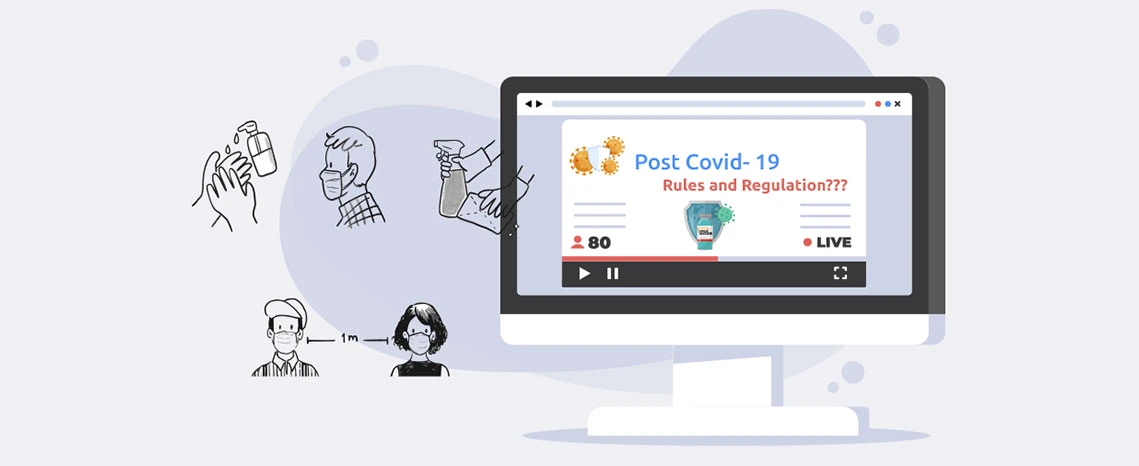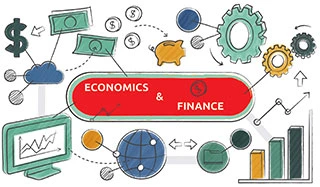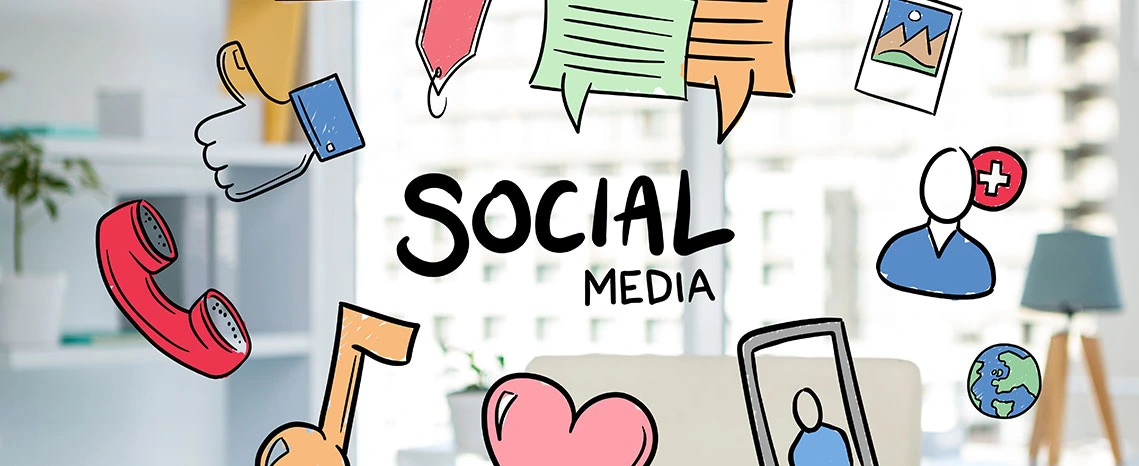The Power of Storytelling in Business

Everyone and everything has a story to tell, even brands. The art of Storytelling is an integral skill used in the business world which involves crafting your words in such a way that it provokes emotion, delivers purpose, and helps gain a competitive edge. It is very vital for businesses to inculcate storytelling as it gravely builds relationships, gains loyal customers, and inspires the public. Thus, it is said that storytelling is an underrated skill to have in the business world.
Possessing the knack of efficacious storytelling is what sets you apart and can thrust your business to greater heights. It is also observed that conveying your content in the form of a story tends to grab more traction. The art of powerful storytelling goes a long way for businesses on the path to their success. The power storytelling holds in the business world is enormous. A good storyteller can make a small idea look appealing and a poor storyteller can butcher an excellent idea. Utilizing personal anecdotes to convey your business’s motto adds an emotional connection with the listeners and in the long run builds loyal customers and builds relationships, taking your business to great heights.
What makes a story persuasive?
- Involvement of the key elements: Storytelling does not just involve a bunch of words put together. It constitutes the effort, hard work, struggle, and emotions faced by the particular business. Storytelling turns into effective storytelling when the above elements are encompassed. It gives a more personal touch to the brand to which customers can relate and connect to.
- Alignment of your brand’s values: Another important pre-requisite is to ensure that your brand’s motto, value, and culture align with that of your storytelling. This brings in loyal customers and enables better brand value and image. Communicating what your brand is about and the reason behind launching the product/service builds a higher brand value proposition and transparency.
- Usage of statistics: Using real-life data, statistics, and case studies to show a more realistic and transparent picture to the public. This acts as a supporting element, backs up what is being said, and provides a more believable picture to the public.
- Projecting your authenticity: It is more appealing to the ears when we see how a brand has bought transformation in society or how it has positively disrupted the market. This can be done by using real-life testimonials, and examples. Paint a clear picture of how your product/service will bring ease into people’s life and abundantly transform their lives.
- Lastly, keep in mind that, however genuine your business is, nothing can reach perfection. It is important to take feedback from customers and work on bringing changes to your business accordingly. Change is an inevitable process, especially in the business world.
Examples of brands that successfully use storytelling:
DOVE: The famous hygiene brand, Dove, thrivingly uses storytelling to promote its brand. They emphasize the importance of Body positivity and how one should feel good in their skin. Their story is firmly based on breaking beauty standards and norms. All the campaigns of DOVE are based on embracing yourself, celebrating diversity, and building confidence.
Airbnb: Airbnb, a company that provides short and long-term lodging opportunities, bases its story around the idea of creating a memorable traveling experience and providing a home- away from home kind of feeling. They feature testimonials of hosts and guests and highlight how they formed personal connections and developed a feeling of belongingness through the platform.
LEGO: LEGO, which is a famous toy production company and is seen in every kid’s hands, looks towards providing their customers with an enjoyable and interactive experience. They also look to developing skills in children such as imagination, and creativity. The branding of LEGO in their packaging or films is quite attractive to the eye and immediately grabs the attention of children.
Conclusion
To conclude, the power, the concept of storytelling holds is quite monumental. It can make or break the image of a business. It holds the ability to build rapport with customers, conveying of complex information, Competitive edge, Differentiate your company from the rest, inform decision-making, and enhanced brand value. It also promotes a cohesive working environment by fostering the core values of the company, thus cultivating a sense of belonging and purpose.
Read Your Next Blog

B.A. LL.B. Course Details: Duration, Fees, Subjects, Syllabus, and Admission 2025

Unveiling the World of Hospitality Management: Crafting Memorable Experiences

What is Journalism and Mass Communication: Crafting Stories That Shape the World

How to Become a Lawyer: A Step-by-Step Guide to a Rewarding Legal Career

Be a Master of the Smallest Particle Alive and Know What is Nanotechnology

Engineering Aspirations: Your Guide to B.Tech Courses and Admissions 2025

Mastering the Law: Your Ultimate Guide to the 3-Year LLB Course Syllabus

Take a Flight to Success by Knowing the Answer of What is Aerospace Engineering

LL.B. Course Details: Everything You Need to Know to Kickstart Your Legal Career

From Classrooms to Coding: Courses After 12th Computer Science for Aspiring Tech Wizard

What is Mechanical Engineering: The Science Behind Machines and Mechanics

From Courtrooms to Corporate Offices: Government Jobs You Can Land with a BBA LL.B.

Essential BBA Course Details: All You Need to Know About Business Studies

Design the Future with a B.Des – Where Creativity and Strategy Collide

Explore the Future: Top B.Tech. Courses to Kickstart Your Engineering Career

From Guest Services to Executive Suites: Navigating Your Journey with B.Sc. in Hospitality Management Course

From Resorts to Restaurants: Exploring Jobs After Hospitality Management

From Data to Discovery: How Biomedical Data Science is Accelerating Breakthroughs in Medicine

Step into the World of Finance: Your Guide to BBA Finance Admissions and Opportunities

Climbing the Academic Ladder: Your Ultimate Guide to Doing a Ph.D. in India

Power Up Your Potential: Best Engineering Courses After 12th For Tech Enthusiasts

System Engineering: Building a Resilient Career in a Rapidly Changing World

Making the Right Choice: Exploring the Best Career Options After 12th Grade

More Than Just Litigator: 10 Rewarding Career Options After B.A LL.B. (Hons.)

Develop Media Literacy and Form a Career in Journalism and Mass Communication

Is Mechanical Engineering a Good Career? Exploring Career Paths & Benefits

Innovate Infrastructure Development – Different Types of Civil Engineering

Give a Boost to Your Technologically-advanced Career with M.Tech. Courses

Different Types of MBA Courses – Gain Valuable Skills for the Business World

Elevate Your Leadership Expertise with a Doctorate in Business Administration

Lay a Solid Foundation for Your Career with the Exploration of Types of Mechanical Engineering

Embrace the Science of Healing and Innovation with Biotechnology Engineering Scope

Discern Your Dream Career in Media with the Scope of Journalism and Mass Communication

Exploring Law Courses After 12th: Your Gateway to a Diverse Legal Landscape

The Power of Connectivity: Unveiling the Scope of Electronics and Communication Engineering

Exploring the Expansive Horizons: The Scope of Journalism and Mass Communication

Achieving Educational Excellence: A Deep Dive into Master’s Degree in Education

Beyond the Degree: Unveiling the Multifaceted Benefits of Doing an MBA

Bridging Gaps, Building Futures: Exploring the Endless Scopes of Civil Engineering

Choosing Your Legal Path: BA LLB vs BBA LLB – Which Course is Better?

Kickstart Your Journey With Mass Communication Courses After 12th Grade

Decoding the Difference Between Electrical and Electronics Engineering

Next Steps: Exploring Top Computer Science Engineering Courses After 12th

Journalism Courses After 12th – Understanding the Significance of a BA in Journalism and Mass Communication

Forge Your Path to Excellence with Ph.D. Admission – Dive Into Details

Why MBA After Engineering: Transcending from Technical Wizardry to Leadership Mastery

Know the Scope of PhD in Economics and uncover hidden patterns of economic brilliance.

A Closer Look Into the BBA Computational Business Analytics Admission Process

From Circuits to Codes – Discover a Wide Range of Career Options After B.Tech. ECE

The Nanotech Revolution: The Astonishing Future Impact of B.Tech. Nanotechnology

From Roads to Skies: The Limitless Horizon of the Scope of M.Tech. in Transportation Engineering

Discover a New Era of Business Education with the Immense Scope of BBA in Computational Business Analytics

From Application to Acceptance – Navigate the Ph.D. Information Science and Technology Admission Process

Pave Your Path to Financial Brilliance with an Enormous Scope of BA Economics and Finance

Join the Digital Revolution with Diverse Career Options After B.Tech. ECE

Discover Your Eligibility for B.Tech. Biotechnology and Kickstart Your Career

Transform Your Career Trajectory with the Lucrative Scope of an Executive MBA

M.Tech. in Power Electronics and Renewable Energy Systems – Pursue New-age Careers

Ph.D. in Economics – Discover Innovative Solutions to Economic Challenges

M. Tech. in Autonomous Electric Vehicles – Dive Into the Future of Autonomous Vehicles (AV)

Construct a Better World with B.Tech. in Civil Engineering from Mahindra University

Acquire the Futuristic Mathematical & Computing Technologies with a Computational Mathematics Course

PhD in Business Administration – Dig Deeper into the Science of Management

B.Tech in Mechanical Engineering – Become a Master of Mechanics at Mahindra University

Shape Your Engineering Career with Mahindra University – One of the Best Engineering Colleges in Hyderabad

Transform Lives & Shape the World with Mahindra University – One of the Top Civil Engineering Colleges in Hyderabad

B Tech in Artificial Intelligence – The Next Big Thing in Technological Revolution

Lead the Tech Revolution with BTech CSE at Mahindra University – One of the Best Computer Science Engineering Colleges in Hyderabad

Kickstart Your Legal Career with Mahindra University – One of the Best Colleges for BBA LLB

Top BA LLB Colleges in Hyderabad – Training Exceptional Lawyers and Leaders

BTech Electronics and Computer Engineering Course – Engage in Independent and Life-long Learning

Best Colleges for Humanities and Social Sciences – Get World-class Training and Hands-on Learning Experience
![Arm_Yourself_with_Deep_Business_Knowledge_&_Insights_with_PhD_Program_in_Business_Administration_at_Mahindra_University[1] Arm_Yourself_with_Deep_Business_Knowledge_&_Insights_with_PhD_Program_in_Business_Administration_at_Mahindra_University[1]](https://www.mahindrauniversity.edu.in/wp-content/uploads/2023/04/Arm_Yourself_with_Deep_Business_Knowledge__Insights_with_PhD_Program_in_Business_Administration_at_Mahindra_University1.jpg)
Arm Yourself with Deep Business Knowledge & Insights with PhD Program in Business Administration at Mahindra University
![Emerge_as_a_Forward_thinking_Mechanical_Engineer_with_B_1140x460[1] Emerge_as_a_Forward_thinking_Mechanical_Engineer_with_B_1140x460[1]](https://www.mahindrauniversity.edu.in/wp-content/uploads/2023/04/Emerge_as_a_Forward_thinking_Mechanical_Engineer_with_B_1140x4601.jpg)
Emerge as a Forward-thinking Mechanical Engineer with B.Tech in Mechanical Engineering at Mahindra University
![B.Tech_in_Computer_Science_Engineering_(BTech_CSE)_Your_Gateway_to_Become_a_Computer_Genius_1140x460[1] B.Tech_in_Computer_Science_Engineering_(BTech_CSE)_Your_Gateway_to_Become_a_Computer_Genius_1140x460[1]](https://www.mahindrauniversity.edu.in/wp-content/uploads/2023/04/B.Tech_in_Computer_Science_Engineering_BTech_CSE_Your_Gateway_to_Become_a_Computer_Genius_1140x4601.jpg)
B.Tech in Computer Science Engineering (BTech CSE) – Your Gateway to Become a Computer Genius
![Digital_Marketing_is_Booming_Globally_1140x460[1] Digital_Marketing_is_Booming_Globally_1140x460[1]](https://www.mahindrauniversity.edu.in/wp-content/uploads/2023/04/Digital_Marketing_is_Booming_Globally_1140x4601.jpg)
The Scope of Digital Marketing is Booming Globally. Transform the Business Landscape with a BBA in Digital Marketing
![MU_Electrical20Computer20Engineering_1140x460[1] MU_Electrical20Computer20Engineering_1140x460[1]](https://www.mahindrauniversity.edu.in/wp-content/uploads/2023/04/MU_Electrical20Computer20Engineering_1140x4601.jpg)
India Calls for Multitalented Engineers. Be the One with the Electrical and Computer Science Engineering Course
![BA_LLB_Hons_Course_at_Mahindra_University[1] BA_LLB_Hons_Course_at_Mahindra_University[1]](https://www.mahindrauniversity.edu.in/wp-content/uploads/2023/04/BA_LLB_Hons_Course_at_Mahindra_University1.webp)
Do You Want to Pursue Law as a Career? Take BA LLB Hons Course at Mahindra University
![Management_&_Business_Administration_is_Tremendously_High[1] Management_&_Business_Administration_is_Tremendously_High[1]](https://www.mahindrauniversity.edu.in/wp-content/uploads/2023/04/Management__Business_Administration_is_Tremendously_High1.jpg)
The Scope of PhD in Management & Business Administration is Tremendously High. Understanding the Significance.

Civil Engineers Are New-age Superheroes. How is Mahindra University Moulding Futuristic Civil Engineers?

Be Legally Empowered by Pursuing Law | Top BA LLB (Hons) Colleges in Hyderabad

Pursue BA in Economics & Finance and contribute to India’s economic development

A Comprehensive Outlook On One Of The Highly Sought After Courses In Law: BBA LLB (Hons)

Why Revolutionary B.Tech Computer Science and Engineering Course Is The Choice Of Every Aspiring Student?

B.Tech in Computer Science & Engineering: A course for those who want to learn to lead forward

Manifesting excellent managerial skills and a fatter salary tag? It’s just a degree away.

Why BBA LLB is the right course for Law and Business enthusiasts in 2022

Here’s why B.Tech in Mechanical Engineering is one of the emerging courses for today’s talented youngsters

How Has Digital Marketing Turned Out To Be A Boon For Creative Individuals ?

Reasons Why You Should be active in Sports, Extracurriculars at The University

Skillsets That Give You an Edge Over Others in Securing Your Dream Job

Getting Back to Campus in The Post-COVID 19 World, 5 Hacks You Should Remember

How has Computer Science Engineering (CSE) evolved to create a demand among engineering aspirants

How B.Tech In Mechatronics Engineering Contributes In Making Human Life Easier?

Most Promising Engineering Disciplines with the Best Opportunities in 2025









































































































![whyistraining&placementcellimportant[1] whyistraining&placementcellimportant[1]](https://www.mahindrauniversity.edu.in/wp-content/uploads/2023/04/why20is20training2020placement20cell20important1.png)
![TheDifferencesbetweenRights&Duties[1] TheDifferencesbetweenRights&Duties[1]](https://www.mahindrauniversity.edu.in/wp-content/uploads/2023/04/The20Differences20between20Rights2020Duties1.png)
![sleep_deprivation[1] sleep_deprivation[1]](https://www.mahindrauniversity.edu.in/wp-content/uploads/2023/04/sleep_deprivation1.jpg)
![SelfLoveBlogImage2[1] SelfLoveBlogImage2[1]](https://www.mahindrauniversity.edu.in/wp-content/uploads/2023/04/Self20Love20Blog20Image2021.png)







































































































